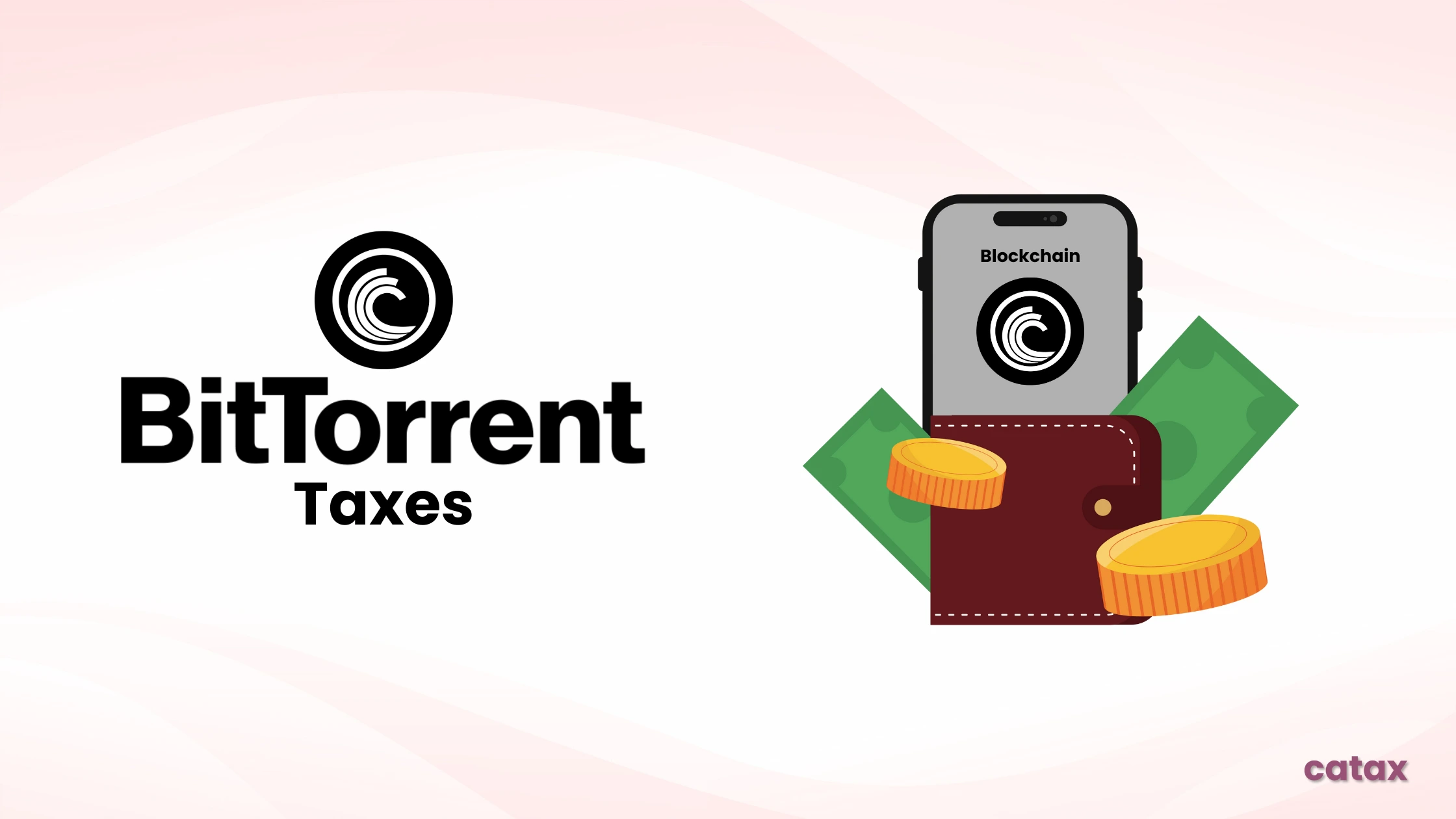Cryptocurrency tax laws differ from country to country, and BitTorrent (BTT) transactions may be taxable depending on local regulations. Whether you buy, sell, trade, or stake BTT, understanding how tax authorities classify these activities will help you stay compliant and avoid penalties.
This guide covers the key tax considerations for BitTorrent (BTT) investors and traders.
How to Connect Your BitTorrent Wallet with Catax
- Open your wallet or block explorer (like MetaMask, Trust Wallet, or any wallet you use).
- Search and copy your public address or key.
On Catax:
- Login to Catax.app.
- Go to Integrations from the left sidebar.
- Click on Chain and search for BitTorrent Wallet.
- Paste your public address and click Connect.
Do You Need to Pay Tax on BitTorrent (BTT) Transactions?
Yes, most countries impose taxes on BitTorrent (BTT) transactions. Governments classify cryptocurrencies as capital assets, property, or income, depending on how you use them.
Taxable events include:
- Selling BTT for a profit (capital gains tax may apply).
- Trading BTT for another cryptocurrency (crypto-to-crypto swaps may be taxable).
- Earning BTT through staking or rewards (some countries tax staking income when received).
- Using BTT for purchases (spending crypto may trigger capital gains tax).
Since tax regulations differ by country, check how BitTorrent transactions are categorized in your region
Can You Deduct Trading Fees and Other Costs?
Some tax authorities allow deductions for trading expenses, while others do not.
You may be able to deduct:
- Trading fees paid to exchanges.
- Network fees (gas fees) for processing transactions.
- Security and custody expenses related to storing BTT.
In some countries, only the cost of acquiring BTT is deductible when calculating taxable profits. Reviewing your country’s tax rules before filing your taxes is important.
How Is Staking Income Taxed?
If you earn staking rewards in BTT, the tax treatment depends on your country’s regulations.
- Some governments tax staking rewards as income when you receive them.
- Others apply capital gains tax only when you sell your earned BTT.
Checking how your country taxes staking rewards can help you avoid unexpected tax liabilities.
Does Holding BitTorrent (BTT) Longer Reduce Taxes?
Your tax rate may depend on how long you hold BTT before selling. Common tax structures include:
- Short-term holdings (less than a year) may be taxed at higher rates.
- Long-term holdings (more than a year) may qualify for lower tax rates.
- Some countries apply a fixed tax rate on all crypto profits, regardless of how long you hold them.
Knowing your country’s tax policies can help with strategic investment decisions.
How to Stay Compliant with BitTorrent (BTT) Tax Regulations
Governments are tightening cryptocurrency regulations, making compliance essential. To avoid tax issues:
- Consult a tax professional if you are unsure about your obligations can help consolidate data and prevent paying taxes twice on the same asset.
- Understand how your country classifies BTT transactions (capital gains, income, or business revenue).
- Check if you can deduct trading fees, losses, or staking rewards from your taxable income.
- Maintain accurate records of every transaction for easy tax reporting.
